Video
money icf express #indianrailway #indiantrain #money #train #icf #phonk #shorts

Train me paise dekhte hi sab control se bahar ho gaye 😳💸
log ek dusre ke upar girne lage 💀🔥
kisi ko kuch nahi dikha… bas paisa hi paisa 😈
aisa scene shayad hi kabhi dekha hoga 🚆💸
💠 Clip Credit: @s16hyam in Instagram 👍🏻 😊 Respect to original owner.
👉 Aman rail fan
#MoneyLoot
#IndianRailways
#TrainShorts
#Railfans
#CashScene
#TrainVideo
#RailwayViral
#ViralMoment
#DesiViral
#ViralShorts
source
Video
This Is Where ALL The Money Is Made. (My 4th Bitcoin Cycle)

Everyone is down and I don’t blame them but you are missing it. This is when ALL The money is made AND YOU MADE IT!
The links below may include affiliate links, which means I may receive a commission at no cost to you if you make a purchase through a link. You DO NOT have to use the links but you will not receive any bonus if offered. Not investment advice. Crypto investing and trading involves risk of loss.
●▬▬▬▬▬▬CRYPTO CRITICAL VIDEOS▬▬▬▬▬▬▬●
1. THE 5 RULES – https://youtu.be/iNBiZ5Bo__U
2. AVOID ALL SCAMS. SOURCE IT – https://youtube.com/live/m77Oxmh70Zc
3. DON’T FALL FOR A.I. SCAMS! – https://youtu.be/8m4M0lvP5-o
4. WHY STORAGE DIVERSIFICATION? – https://youtu.be/j3ORFfbnB6Q
5. DYNAMIC DCA’ing – https://www.youtube.com/watch?v=Dbd03iAw0HQ
7. STRESS FREE PROFIT TAKING – https://youtu.be/kXZ-aW5FIP8
8. WHY ONLY KRAKEN? – https://youtu.be/m2FPQNHaLvY
9. POOL JUMP 100k – https://youtu.be/7sjYqZyCRBs
10. BEAT THE SPREAD ON EXCHANGES – https://youtu.be/oWFC2jEbGk4
11. NEW CRYPTO TAX RULE 2025 – https://youtu.be/vgUuILVYn5c
12. PRICE PREDICTIONS ARE ALL WORTHLESS – https://youtu.be/W3_bzDlBN-4
13. DECENTRALIZED HEALTH CARE = STABLE COSTS – https://youtu.be/GO1dI_Of4Lo
0:00 – Market Recap | Topics Overview
2:04 –
●▬▬▬▬▬▬CRYPTO ESSENTIALS▬▬▬▬▬▬▬●
🟧 (100% FREE!) Simplified Crypto Education (EASY!)
🟧 DAN Website ► https://danteachescrypto.com/
🔹🔷 DAN CARDANO STAKE POOL: https://bit.ly/danpool 🔷🔹
💰iTrust CRYPTO IRA *channel sponsor*
💰💰 $100 Sign-Up BONUS & NO MONTHLY FEES!
💰💰I RECOMMEND & HAVE a ROTH IRA with iTRUST
💰💰🛑 Why a CRYPTO IRA? VIDEO 👉 https://bit.ly/danIRA
💰💰🛑 🛑 Why You MUST Diversify Crypto Storage – https://bit.ly/DANcustody
💰💰💰💰💰 *affiliate LINK – https://www.itrustcapital.com/go/dan
🚀 Ben’s INTO THE CRYPTOVERSE Site (On-Chain, Macro & Strategy)
🚀 *affiliate LINK – https://intothecryptoverse.com/c/dan10
🚀10% OFF 1st MONTH ANY PLAN (excluding LIFETIME) with CODE: DAN10
🟣 Kraken sign up – Claim $25 in the APP! 👇👇
🟣 WHY Kraken? Vid – https://www.youtube.com/watch?v=m2FPQNHaLvY
🟣 *Affiliate Link – https://kraken.pxf.io/c/2406374/2935711/10583
🕋 TANGEM COLD STORAGE WALLET (my choice)
🕋 Simple, Secure & Inexpensive. EAL 6+ Secure Rating.
🕋 Tangem Deep Dive Video – https://www.youtube.com/watch?v=CJenljei4ac
🕋 Tangem Staking Video – https://www.youtube.com/watch?v=Lxd1CVZDKG0
🕋 Tangem How To Swap Vid – https://www.youtube.com/watch?v=vbyyGp7Ayp4
🕋 *Affiliate Link 10% OFF! – https://tangem.com/en/pricing/?promocode=dan
📙 KEEP all your Seeds & Passwords SAFE in a STONEBOOK
📙 Water/Tear/Tamper Resistant + WRITE IN INVISIBLE INK!
📙 WHY I have a StoneBook- https://youtu.be/Vm6Ok-xmcak
📙 (20% OFF!! *affiliate LINK) ► https://shieldfolio.com/discount/DAN
📈CRYPTO TAX Software I use + FREE Portfolio Tracker!! *affiliate link*
📉HOW TO USE Video – http://bit.ly/dantaxes
📈20% OFF – https://coinledger.io/?fpr=d729l
📉Coupon Code: DANCRYPTO
🧐 Think it’s a SCAM Message/DM or EMAIL? Read This Post ⬇️
🧐 https://x.com/NewsAsset/status/1937698216025211325
●▬▬▬CHARITIES (When You Feel Like GIVING BACK)▬▬▬▬●
🏠ProTechos: Helping the Poor to rebuild their roofs AND Training the NEXT generation carpentry skills 👉 https://www.protechos.org/
🐶 The Amigos De Los Animales Animal Shelter director DONATED her ENTIRE HOME to help save the abondoned dogs of Puerto Rico. I’m asking for help to give her a proper LIVING SPACE. 🐶 DONATE HERE – https://gofund.me/40d09f18
●▬▬▬▬▬▬▬▬FOLLOW D.A.N.▬▬▬▬▬▬▬▬▬▬●
🆇 X / Twitter – https://twitter.com/NewsAsset
🆘 DAN DEGEN (2nd YouTube Channel) https://bit.ly/danclips
●▬▬▬ FOLLOW Max Daily Push (How I Stay In Shape After 50) ▬▬▬●
💪 X – https://x.com/maxdailypush
💪 Telegram – https://t.me/mondaymaxpush
●▬▬▬▬▬▬▬▬STRATEGIES▬▬▬▬▬▬▬▬▬●
► 5% DEGEN PLAYS – https://bit.ly/DEGEN
► ALL CRYPTO EXITS (OLD) – http://bit.ly/allexits
► 2024/2025 EXIT (NEW) – https://bit.ly/2025EXIT
⭐️4 YEAR CYCLES – https://bit.ly/4yearCycle
⭐️DCA 5 Examples – https://bit.ly/dcafive
⭐️WHY DOGE – https://bit.ly/dandoge
⭐️$10 WEEK DCA – https://bit.ly/dcadanweek
●▬▬▬▬▬RECOMMENDATIONS▬▬▬▬▬●
MINDSET – https://dailystoic.com/
●▬▬▬▬▬▬▬▬DISCLAIMER▬▬▬▬▬▬▬▬▬●
#BITCOIN #ETHEREUM #CRYPTO #SOLANA
***NOT FINANCIAL, LEGAL, OR TAX ADVICE! This channel is for entertainment purposes only and is just my opinion as I am not an expert or a financial planner. Please perform your own research.
source
Video
Three Digital Assets Set for The Financial Reset! ft. @BlackSwanCapitalist

FEATURED PARTNER:
► Uphold Debit Card – Get Up to 6% in XRP with Every Purchase for 3 Months! Plus more XRP Bonuses Available ➜ https://bit.ly/UpholdXRPCard
In this episode, Paul Barron sits down with Versan and Vandell Aljarrah of Black Swan Capitalist to dissect the seismic shifts currently reshaping the global financial landscape. As trust in traditional institutions continues to erode, the duo explores the transition toward a digital infrastructure where tokenization and utility tokens like XRP and XLM are positioned to redefine asset ownership. The conversation provides a critical look at the rise of Central Bank Digital Currencies (CBDCs), the enduring role of gold as a foundational hedge, and the urgent need for regulatory clarity amidst massive banking consolidation. Ultimately, Barron and his guests offer a roadmap for navigating this financial reset, highlighting why a focused approach to high-utility digital assets may be the key to surviving the slow dismantling of the legacy fiat system.
00:00 The Trust Deficit in Digital Assets
03:20 Market Dynamics and Media Narratives
08:58 The Role of Tokenization in Finance
12:05 Central Bank Digital Currencies and Control
21:19 Regulation and the Future of Crypto
24:50 The Future of Utility Tokens and Gold
29:52 The Value of Hard Assets
31:52 Gold’s Role in the Financial Landscape
33:42 The Central Banking Model and Wealth Confiscation
36:10 The Future of Digital Infrastructure
39:58 Banking System Consolidation and the Great Reset
42:51 The Role of Leadership in Financial Transition in XRP
47:43 Practical Investment Strategies for the Future XRP, HBAR,
=======================================
BEST RESOURCES:
►Protect Your Crypto – Tangem ➜ https://bit.ly/TangemPBN
Use Code: “PBN” for Additional Discounts!
►Get My Portfolio and Trades – https://bit.ly/forgepbpod
►Best Trading Exchange – Get a 10% deposit bonus when you fund your account for the first time. https://bit.ly/PBNBTCC
► Open Your Crypto IRA Free Month with iTrust Capital ➜ Use PROMO CODE – PAUL BARRON https://bit.ly/iTrustPaul
►TRADE and Secure your XRP Anywhere With Starlink! Get a FULL Month FREE by using this link! And in most areas, the equipment is FREE for signing up (terms apply) – https://bit.ly/PaulStarlink
COMMUNITY:
►OFFICIAL XRP POD MERCH – https://bit.ly/xrppodmerch
►Private Telegram Group (FREE) ➜ Barron Market Edge ~ https://t.me/+nISqoMxrok40NTcx
►Join the Paul Barron’s Private Member Group – https://bit.ly/forgepbpod
►Follow me on X: https://bit.ly/pbpodx
►Subscribe to: @PaulBarronNetwork
►Follow me on TikTok https://bit.ly/PBPODTOK
⎺⎺⎺⎺⎺⎺⎺⎺⎺⎺⎺⎺⎺⎺⎺⎺⎺⎺⎺⎺⎺⎺⎺⎺⎺⎺⎺⎺⎺⎺⎺⎺⎺⎺⎺⎺⎺⎺⎺⎺⎺⎺⎺⎺⎺⎺⎺⎺⎺⎺⎺⎺⎺⎺⎺⎺⎺⎺⎺⎺⎺⎺⎺⎺⎺⎺⎺⎺⎺⎺
DISCLOSURE: None of this content is meant to be construed as investment advice; it’s for entertainment purposes only. The links above may include affiliate commissions or referrals. I’m part of an affiliate network and receive compensation from partner websites. The video is accurate as of the posting date, but it may not be accurate in the future.
You should not treat any opinion expressed on this YouTube channel as a specific inducement to make a particular investment or follow a particular strategy, but only as an expression of opinion. Opinions expressed are based upon information considered reliable, but this YouTube channel does not warrant its completeness or accuracy, and it should not be relied upon as such. This YouTube channel is not under any obligation to update or correct any information provided in these videos. Statements and opinions are subject to change without notice. No compensation is received by this YouTube channel for the opinions expressed.
source
Video
OMG EXPERT TOM LEE PREDICTS $664 XRP PRICE?!?!? (This is crazy)

💜 Thanks for supporting the channel! Like, share, and comment if this helped clarify what’s really happening.
🔵 Uphold | Trade, Spend & Earn XRP
➖ U.S. Debit Card: https://uphold.sjv.io/559kj9
➖ Uphold Website: https://uphold.sjv.io/dOmGMq
➖ XRP Rewards: 4% Elite Card / 2% Virtual Card
🟢 Hardware Wallets I Use for XRP
➖ D’CENT Biometric (1x) | 18% Off ($159→$129)
Biometric Wallet – Affiliates
➖ D’CENT Biometric (2x) | 31% Off ($318→$219)
Biometric Wallet 2X Package – Affiliates
➖ Ledger | Official Store
https://www.ledger.com/crypto-sensei
🔗Contact & Collaborations
▸ Business: cryptosensei@cryptonairz.com
▸ Collabs: BD Manager | @Jaalyn_T (Telegram)
▸ Collab Form: https://forms.gle/E6fskio5BBvd4zVn9
▸ Social Links: https://linktr.ee/Crypt0Sensei
(Partnerships & Brand Deals Only | No Agencies)
⚪FREE XRP Newsletter | https://joincryptonairz.com/Newsletter
🔴Full Legal & Regulatory Disclaimer
https://docs.google.com/document/d/1T_wTsSkXDZqdgKDUOKfIEKF-a7ur2kX8gw-e3aAq_Q4/edit?usp=sharing
source
Video
INSANE XRP NEWS!!! USA MOVING FORWARD WITH XRP???? (THIS IS HUGE)

💜 Thanks for supporting the channel! Like, share, and comment if this helped clarify what’s really happening.
🔵 Uphold | Trade, Spend & Earn XRP
➖ U.S. Debit Card: https://uphold.sjv.io/559kj9
➖ Uphold Website: https://uphold.sjv.io/dOmGMq
➖ XRP Rewards: 4% Elite Card / 2% Virtual Card
🟢 Hardware Wallets I Use for XRP
➖ D’CENT Biometric (1x) | 18% Off ($159→$129)
Biometric Wallet – Affiliates
➖ D’CENT Biometric (2x) | 31% Off ($318→$219)
Biometric Wallet 2X Package – Affiliates
➖ Ledger | Official Store
https://www.ledger.com/crypto-sensei
🔗Contact & Collaborations
▸ Business: cryptosensei@cryptonairz.com
▸ Collabs: BD Manager | @Jaalyn_T (Telegram)
▸ Collab Form: https://forms.gle/E6fskio5BBvd4zVn9
▸ Social Links: https://linktr.ee/Crypt0Sensei
(Partnerships & Brand Deals Only | No Agencies)
⚪FREE XRP Newsletter | https://joincryptonairz.com/Newsletter
🔴Full Legal & Regulatory Disclaimer
https://docs.google.com/document/d/1T_wTsSkXDZqdgKDUOKfIEKF-a7ur2kX8gw-e3aAq_Q4/edit?usp=sharing
source
Video
XRP REGS BANKING UPDATE

#xrp #bitcoin #hbar #xlm #eth
🚨SHOW ME YOUR BEST CRYPTO MEMES HERE🚨
https://x.com/HobbiesCards/status/2021979181803090077
https://twitter.com/HobbiesCards
February 19th will be another meeting hosted by the White House for crypto and banking people to come to an understanding. Meanwhile, stablecoins aren’t attracting any new money, crypto spot volume as eroded 50% and more players are leaving the market altogether. Peter Theil and ETHZILLA have turned into a huge flop. Proof that crappy companies buying crypto are still crappy companies. XRP is the 2nd most asked about asset behind btc, but that isn’t helping the price is it. Ethereum is losing lots of support as well during this downturn. Altcoin season is now, renamed to POOP SEASON as we are all taking a big bite out of the poop sammich. Clarity Act, well we got until the end of April. Tick Tock.
🚨ARTICLE LINKS🚨
https://defillama.com/stablecoins
read://https_coinmarketcap.com/?url=https%3A%2F%2Fcoinmarketcap.com%2Facademy%2Farticle%2Fwlfi-token-surges-22percent-before-mar-a-lago-crypto-forum
read://https_coinpaper.com/?url=https%3A%2F%2Fcoinpaper.com%2F14734%2Fethereum-news-peter-thiel-exits-eth-treasury-firm-eth-zilla-amid-ethereum-price-collapse
read://https_beincrypto.com/?url=https%3A%2F%2Fbeincrypto.com%2Fgemini-stock-drops-following-leadership-overhaul%2F
read://https_www.cryptopolitan.com/?url=https%3A%2F%2Fwww.cryptopolitan.com%2Fhyperliquid-washington-defi-policy-push%2F
read://https_investinghaven.com/?url=https%3A%2F%2Finvestinghaven.com%2Fcrypto-blockchain%2Fcoins%2Fxrp%2Fxrp-just-became-cryptos-most-talked-about-asset-after-bitcoin-whats-really-happening%2F
https://x.com/Grayscale/status/2023427386298241196?s=20
https://coinmarketcap.com/currencies/xrp
XRP news today
XLM news today
best trading strategy for crypto
how to make crypto coin and earn money
crypto arbitrage strategy
source
Video
No Gatekeeping: How I #invest my #money #finance #wealth #tyler
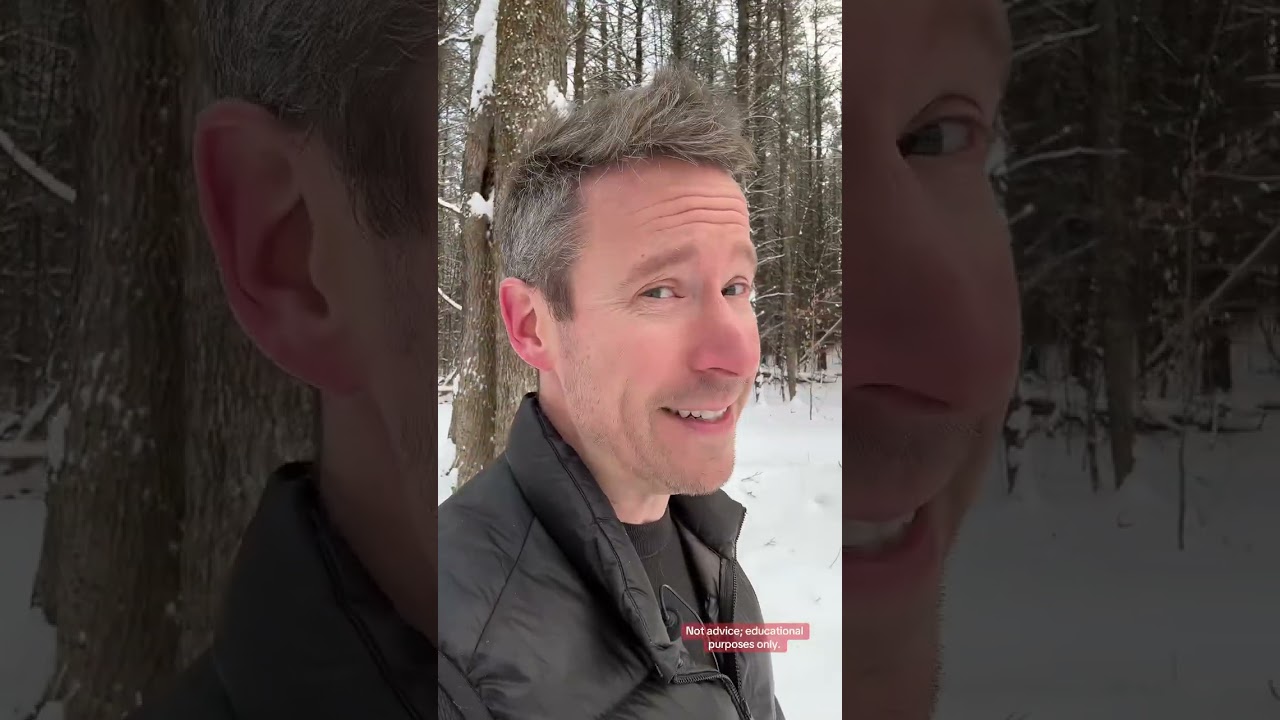
No reason not to show you all that I practice exactly what I preach: a handful of funds, all low expense ratios, all broad market, and heavy equity based on my time horizon and risk tolerance. That is all.
source
Video
Doug DeMuro Exposes Huge Porsche Negligence Toward Customers! #cars #porsche #money
Video
Why U.S. stocks are off to the worst start since 1995*
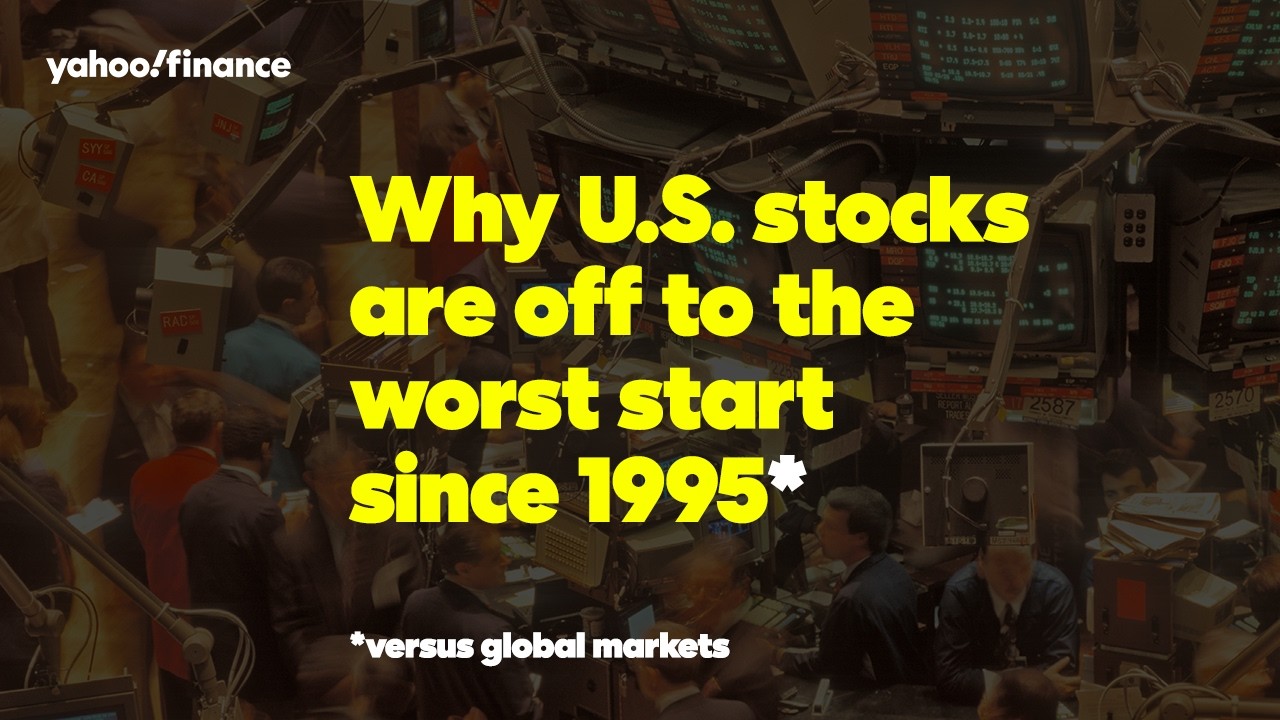
U.S. stocks are having their worst start since 1995, the same year Pixar’s original Toy Story was released. Yahoo Finance Host Julie Hyman, Yahoo Finance Reporter Jake Conley, and Citi Wealth Chief Investment Officer Kate Moore break down what investors need to know.
For more expert insights and analysis on the latest market action, check out Yahoo Finance’s Morning Brief weekdays 9:00 am (ET).
==
Yahoo Finance provides free stock ticker data, up-to-date news, portfolio management resources, comprehensive market data, advanced tools, and more information to help you manage your financial life.
Connect with us:
— Facebook: https://www.facebook.com/yahoofinance
— X/Twitter: https://x.com/YahooFinance
— Instagram: https://www.instagram.com/yahoofinance/
— TikTok: https://www.tiktok.com/@yahoofinance
— LinkedIn: https://www.linkedin.com/company/yahoo-finance
Latest Financial News & Data:
https://finance.yahoo.com/
Get the Yahoo Finance App:
— iOS (https://apple.co/3Rten0R)
— Android (https://bit.ly/3t8UnXO)
source
Video
POV: You’re the Cartel’s Money Launderer
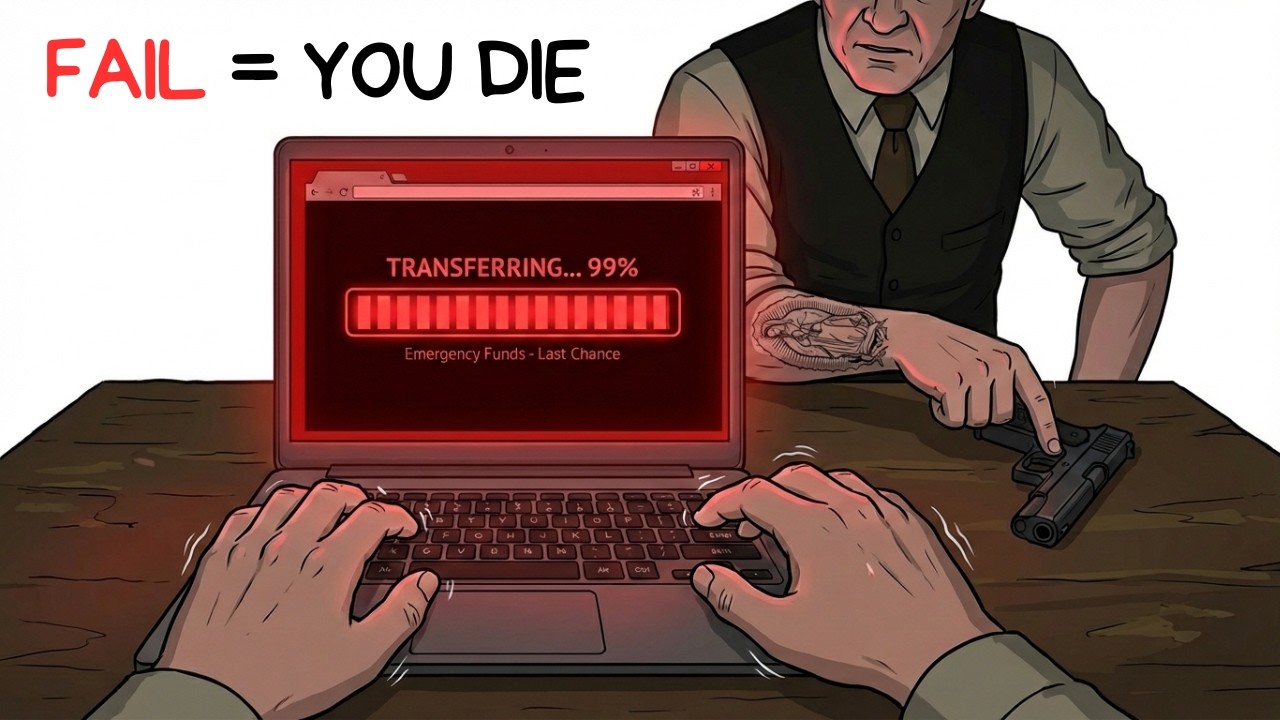
Imagine this: You’re a successful banker — but you owe a fortune to the most dangerous cartel in the world. 😰 In this POV video, you are the protagonist. You have an impossible mission: turn millions of dirty dollars into clean money before time runs out. ⏳
Follow our stickman through this high-stakes financial crime simulation where every decision matters. Will you use cryptocurrency? International trade schemes? Or create fake NFTs as a cover? Step inside the mind of a professional money launderer trapped between a rock and a hard place. But be careful — federal agents are watching closely, and one wrong move could be your downfall.
Can you survive the mafia’s game and walk away untouched? Hit play and feel the adrenaline. 👇 Subscribe for more simulations and explained mysteries!
⚠️ LEGAL NOTICE & TRANSPARENCY (DISCLAIMER)
🎭 Entertainment Purposes: This video is intended solely for entertainment purposes. Just like in a movie, certain events or details have been exaggerated, dramatized, or simplified for the sake of storytelling and humor. Please do not view this content as a serious documentary or professional advice.
🤖 AI Disclosure: This content was created with the assistance of Artificial Intelligence for voiceover and visual support.
⚖️ Copyright: This video falls under the “Fair Use” doctrine for purposes of criticism, commentary, and creative transformation.
source
Video
Billionaire Investor Reveals Why Bitcoin Keeps Dropping | Mike Novogratz

Mike Novogratz is a veteran macro investor and the founder & CEO of Galaxy. This conversation was recorded live at Bitcoin Investor Week in New York. In this conversation, Mike shares why investing has become far more complex, how the dollar’s role as a global reserve currency may be shifting, and what that means for bitcoin, gold, and global markets. We also cover bitcoin’s recent pullback, regulation and ETFs, and why AI, energy, and tokenization could define the next market cycle.
🔊 Audio Podcast
Listen to The Pomp Podcast on the audio platform of your choice: http://pomppodcast.com
🖥️ From The Desk of Anthony Pompliano
Check out my NEW show for daily bite-sized breakdowns of the biggest stories in finance, technology, and politics: http://pompdesk.com/
📧 Newsletter
Pomp writes a daily letter to over 270,000+ investors about business, technology, and finance. He breaks down complex topics into easy-to-understand language while sharing opinions on various aspects of each industry. You can subscribe at: https://pomp.substack.com/
👉 Follow Pomp on Social Media:
Twitter: https://twitter.com/APompliano
Instagram: https://www.instagram.com/pompglobal/
LinkedIn: https://www.linkedin.com/in/anthonypompliano/
🤝 Podcast Sponsors
Arch Public is an agentic trading platform that automates the buying and selling of your preferred crypto strategies. Sign up today at https://www.archpublic.com and start your automated trading strategy for free. No catch. No hidden fees. Just smarter trading.
Simple Mining makes Bitcoin mining simple and accessible for everyone.
We offer a premium white glove hosting service, helping you maximize the profitability of Bitcoin mining. For more information on Simple Mining or to get started mining Bitcoin, visit https://www.simplemining.io/
⏰ TimeStamps:
0:00 – Intro
0:24 – Why the investing game just got harder
5:40 – Is the U.S. losing reserve currency status?
8:37 – AI, productivity, & why inflation may stay low
11:25 – Is Bitcoin actually “not working”?
13:24 – Regulation, Wall Street, & Bitcoin’s next narrative
20:59 – AI, power, & the future of Galaxy
26:16 – Mike’s fantasy football league
#Bitcoin #AnthonyPompliano #Pomp
source
-

 Video3 days ago
Video3 days agoBitcoin: We’re Entering The Most Dangerous Phase
-

 Tech5 days ago
Tech5 days agoLuxman Enters Its Second Century with the D-100 SACD Player and L-100 Integrated Amplifier
-
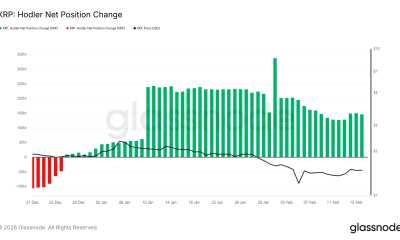
 Crypto World2 days ago
Crypto World2 days agoCan XRP Price Successfully Register a 33% Breakout Past $2?
-

 Sports3 days ago
Sports3 days agoGB's semi-final hopes hang by thread after loss to Switzerland
-

 Video6 days ago
Video6 days agoThe Final Warning: XRP Is Entering The Chaos Zone
-

 Tech3 days ago
Tech3 days agoThe Music Industry Enters Its Less-Is-More Era
-

 Business2 days ago
Business2 days agoInfosys Limited (INFY) Discusses Tech Transitions and the Unique Aspects of the AI Era Transcript
-
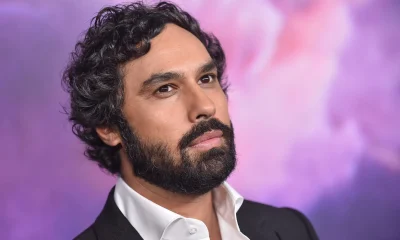
 Entertainment1 day ago
Entertainment1 day agoKunal Nayyar’s Secret Acts Of Kindness Sparks Online Discussion
-
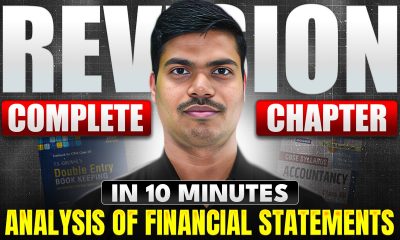
 Video2 days ago
Video2 days agoFinancial Statement Analysis | Complete Chapter Revision in 10 Minutes | Class 12 Board exam 2026
-

 Crypto World6 days ago
Crypto World6 days agoBhutan’s Bitcoin sales enter third straight week with $6.7M BTC offload
-

 Tech1 day ago
Tech1 day agoRetro Rover: LT6502 Laptop Packs 8-Bit Power On The Go
-

 Sports13 hours ago
Sports13 hours agoClearing the boundary, crossing into history: J&K end 67-year wait, enter maiden Ranji Trophy final | Cricket News
-

 Entertainment20 hours ago
Entertainment20 hours agoDolores Catania Blasts Rob Rausch For Turning On ‘Housewives’ On ‘Traitors’
-

 Business1 day ago
Business1 day agoTesla avoids California suspension after ending ‘autopilot’ marketing
-

 Crypto World6 days ago
Crypto World6 days agoKalshi enters $9B sports insurance market with new brokerage deal
-

 NewsBeat4 days ago
NewsBeat4 days agoThe strange Cambridgeshire cemetery that forbade church rectors from entering
-
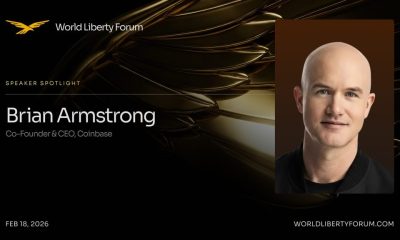
 Crypto World23 hours ago
Crypto World23 hours agoWLFI Crypto Surges Toward $0.12 as Whale Buys $2.75M Before Trump-Linked Forum
-
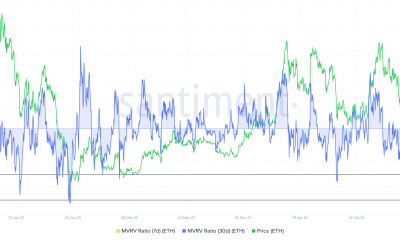
 Crypto World7 days ago
Crypto World7 days agoEthereum Price Struggles Below $2,000 Despite Entering Buy Zone
-

 NewsBeat4 days ago
NewsBeat4 days agoMan dies after entering floodwater during police pursuit
-

 NewsBeat5 days ago
NewsBeat5 days agoUK construction company enters administration, records show










